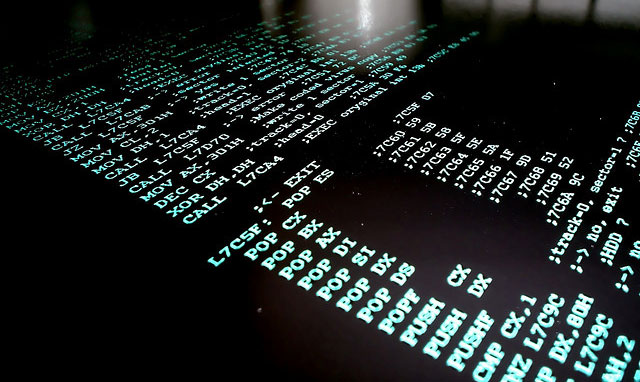 I’m a security-conscious guy, user of antivirus software and sensible passwords. I still remember my first virus infection, something called Pong or Ping Pong. It spawned bouncing balls all over my CGA screen. For the longest time we thought it was part of the Thexter game we were beavering away at, but you could never hit those blasted bouncing balls. Eventually an adult educated in such matters informed that it was a virus.
I’m a security-conscious guy, user of antivirus software and sensible passwords. I still remember my first virus infection, something called Pong or Ping Pong. It spawned bouncing balls all over my CGA screen. For the longest time we thought it was part of the Thexter game we were beavering away at, but you could never hit those blasted bouncing balls. Eventually an adult educated in such matters informed that it was a virus.
Worse things arrived in the years after that, but generally speaking, virus avoidance became easier. It just took common sense, something that those gnostic with technology always held over the computer-impaired. We’ve all pulled a face of some sort when learning about how an acquaintance clicked on an unsolicited attachment or put an unknown USB stick into an unprotected machine. Even today many of us roll our eyes at news of phishing attacks and the suckers who fall for them.
Recently I became someone’s hero by running a malware cleaner on their machine, positively doubling the performance of the box. After installing antivirus software, I suggested as a fallback that they probably shouldn’t do their Internet banking on a PC — ever.
But it also reminded me of simpler times, when viruses still contextualised the average technological threat most of us would ever face. Today it is a bit harder to know when you might misstep.
Some scenarios are a bit obvious, such as sextortion. It’s a practice rising in infamy in the Far East and targets the lonely. The concept is pretty simple: by using fake social media profiles, criminals lure people into online sex acts over video connections. These are secretly recorded and then the victim is blackmailed.
That sounds like a sticky situation, but can be avoided with relative ease. Not so much when it comes to ransomware. Australia happens to be in the middle of such a problem right now, with a piece of malware that is themed around the popular show Breaking Bad. It appears the code’s creators are fans, so their system contains numerous references to the hit series. But what it does is more common: user files are locked away and victims are forced to make ransom payments through Bitcoin.
If my nervousness over online exposure is not bad enough, enter the act of kidnapping routers and printers. This has been going on for a while, but a recent report by NSFocus indicates a sharp rise in unsecured routers and printers being hijacked, then turned towards network attacks. According to one local Internet service provider I spoke to, denial-of-service attacks using such hardware is becoming commonplace.
That begs the question: how do I even secure my router or printer? I don’t actually know — and I know enough to have kept myself safe so far. The rules have certainly changed.
Then, finally, there is the least passive of all of these threats and one that I’m most worried about: hacktivism. A release from arms industry analysts Janes IHS predicts a big spike in hacking attacks due to rising instability in the Middle East. Such so-called hacktivists tend to target opposing entities, like government networks.

But what if you anger someone on a comments section? How hard is it really for them to turn their money to a few hackers, employing them to make your online life hell? I’d like to think online audiences are not that petty, but we all know better. And the argument that hacktivism is at least rooted in righteousness is nonsense. Last year the infamous group Anonymous attacked hip hop artist Iggy Azalea over some musical spat: not a war or atrocities, but because she’s apparently a copycat.
That’s how low hacktivism sets the bar: to be a target, they just have to disagree with you. I’m never arguing online over who the best James Bond was again.
Is all of this scary? Yes. Can I offer any words of comfort? No, nor could any of the security experts that I voiced these concerns to. It is very clear that the rules have changed. Dollops of common sense and good online habits are no longer enough. These days the wrong word on a public forum can attract trolling hackers, while your new office hardware could be exposed without you knowing.
So much for laughing behind the back of technology ignoramuses. Yes, average people will continue to do stupid things like not run antivirus software. But in today’s cyber world, even the smart are increasingly at a serious disadvantage.
- James Francis is a freelance writer whose work has appeared in several local and international publications
- Read previous columns by Francis

